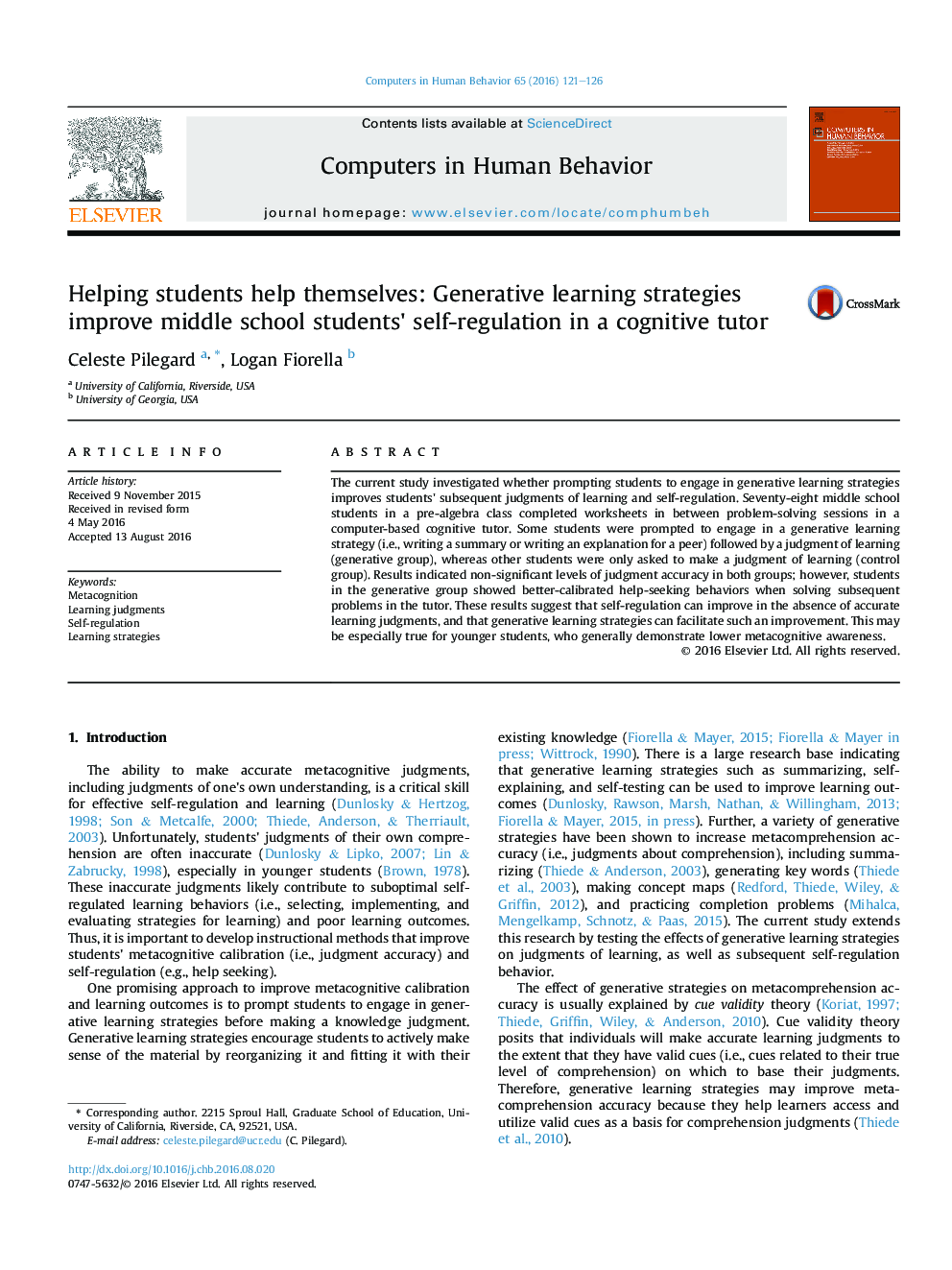| Article ID | Journal | Published Year | Pages | File Type |
|---|---|---|---|---|
| 4937781 | Computers in Human Behavior | 2016 | 6 Pages |
Abstract
The current study investigated whether prompting students to engage in generative learning strategies improves students' subsequent judgments of learning and self-regulation. Seventy-eight middle school students in a pre-algebra class completed worksheets in between problem-solving sessions in a computer-based cognitive tutor. Some students were prompted to engage in a generative learning strategy (i.e., writing a summary or writing an explanation for a peer) followed by a judgment of learning (generative group), whereas other students were only asked to make a judgment of learning (control group). Results indicated non-significant levels of judgment accuracy in both groups; however, students in the generative group showed better-calibrated help-seeking behaviors when solving subsequent problems in the tutor. These results suggest that self-regulation can improve in the absence of accurate learning judgments, and that generative learning strategies can facilitate such an improvement. This may be especially true for younger students, who generally demonstrate lower metacognitive awareness.
Related Topics
Physical Sciences and Engineering
Computer Science
Computer Science Applications
Authors
Celeste Pilegard, Logan Fiorella,
